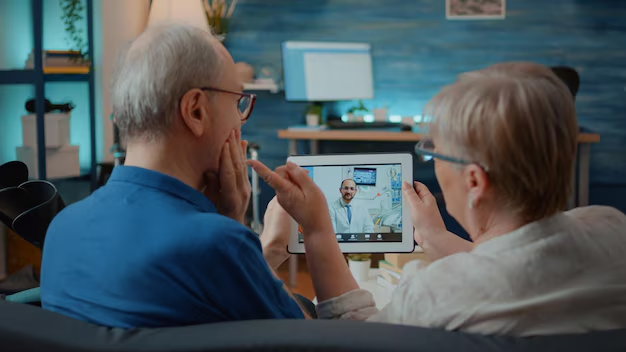Table of Contents:
- Introduction to Technological Advancements in Healthcare
- The Digital Revolution in Patient Care
- Improving Access and Convenience
- Enhancing Diagnoses through Technology
- Personalizing Care with Data
- Addressing Technology Challenges in Healthcare
- Future Trends in Healthcare Technology
Introduction to Technological Advancements in Healthcare
Technology has revolutionized healthcare delivery in recent years, transforming patient care with remarkable innovations. Thanks to this important change, healthcare practitioners are now able to improve patient outcomes and care qualityHealthcare practitioners are now able to improve patient outcomes and care quality thanks to this important change. One pivotal technology, the clinical information system, plays a crucial role in this transformation by streamlining data management and facilitating more informed decision-making. These systems have set a foundation for more efficient, effective patient care by creating comprehensive digital records accessible to all providers involved in a patient’s care.
Digitization of healthcare infrastructure, alongside advancements in medical devices and communication technologies, has ushered in a new era where patient-centric care is more achievable than ever. By harnessing technology’s potential, healthcare systems can better address patient needs, refine treatment protocols, and foster enhanced collaboration among medical teams. The continued integration of advanced technologies promises a promising future for patients and practitioners.
The Digital Revolution in Patient Care
The digital revolution has profoundly impacted patient care by facilitating the shift from paper-based to electronic health records (EHRs). EHRs have become an integral part of modern healthcare systems, providing a single, accessible source of patient information that can be updated and shared easily between various healthcare providers. This transition has increased accuracy, enhanced the timeliness of care, and minimized the chances of medical errors.
Moreover, telemedicine has emerged as a critical component of the digital revolution, particularly in light of the COVID-19 pandemic. By enabling patients to consult with doctors remotely, telemedicine services have reduced the need for travel and broken down geographical barriers, increasing access to healthcare. As a result, telehealth has improved care accessibility, especially for patients in rural or underserved areas.
Improving Access and Convenience
Technology has significantly improved patients’ access to healthcare, making it more convenient and efficient. Patients can schedule appointments, access their medical records, and receive reminders for medication or upcoming check-ups through cutting-edge mobile applications and online portals. With the help of these resources, patients may take control of their health and make sure they are aware of their treatment.
Wearable technology also represents a major advancement in patient care. Devices like smartwatches and fitness trackers directly provide real-time health data, such as heart rate and activity levels, to patients and their healthcare providers. This allows for continuous monitoring outside traditional clinical settings, allowing for more personalized and proactive management of health conditions.
Enhancing Diagnoses through Technology
Modern Technology on Patient Care like machine learning algorithms and artificial intelligence (AI) have greatly improved the precision of medical diagnosis. These technologies analyze large volumes of medical data andLarge volumes of medical data are analyzed by these technologies, which spot trends and abnormalities that the human eye could miss. For instance, AI can assist radiologists by detecting abnormalities in medical imaging with greater accuracy and speed.
Furthermore, genetic testing and molecular diagnostics have expanded diagnostic capabilities, providing insights into patients’ predispositions to certain diseases. By identifying genetic markers, healthcare providers can develop personalized treatment plans tailored to each individual’s genetic profile, enhancing the precision of diagnoses and interventions.
Personalizing Care with Data
Personalized medicine, driven by technological advances, focuses on customizing healthcare based on an individual’s unique characteristics, including genetics, lifestyle, and environment. By leveraging comprehensive data from EHRs and wearable devices, healthcare providers can gain deeper insights into a patient’s health conditions and lifestyle habits, allowing them to tailor treatment plans accordingly.
Personalized care also extends to pharmacogenomics, where a patient’s genetic makeup guides medication choices. This approach minimizes adverse drug reactions and ensures more effective treatments, increasing patient satisfaction and improving outcomes. As data collection and analysis become more sophisticated, the potential for personalized care will continue to expand and evolve.
Addressing Technology Challenges in Healthcare
While the benefits of technology in healthcare are substantial, they also come with challenges that must be addressed. Since health records are sensitive, strong safeguards against breaches and unwanted access are essential. For this reason, data privacy and security are of utmost importance. Maintaining patient confidentiality and confidence requires adherence to laws like the Health Insurance Portability and Accountability Act (HIPAA).
Additionally, integrating new technologies into existing healthcare systems can pose logistical challenges. Significant infrastructure upgrades or training initiatives may be required at facilities to give employees the skills they need. Addressing these challenges through thoughtful planning and investment is critical to realizing the full potential of technological advancements in healthcare.
Future Trends in Healthcare Technology
Looking ahead, healthcare technologies are poised for even more transformative advancements. Innovations like blockchain technology could secure patient data by offering decentralized and tamper-proof records. Similarly, advancements in nanotechnology promise new medical treatments at the cellular level, potentially revolutionizing the treatment of complex diseases.
Furthermore, integrating AI and Internet of Things (IoT) devices into healthcare systems will create smarter, interconnected environments that anticipate and respond to patient needs proactively. As these technologies advance, leveraging their advantages and enhancing patient care outcomes will require constant research and cooperation between tech firms and healthcare practitioners. By continuously adapting and embracing new possibilities, the healthcare industry can navigate these changes, focusing on enhancing patient experience and outcomes.







